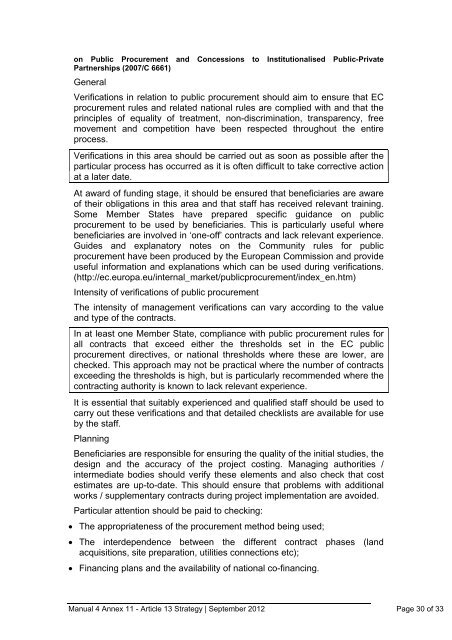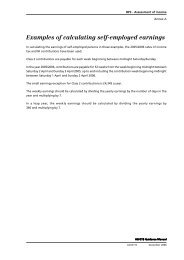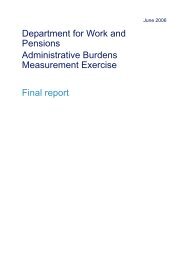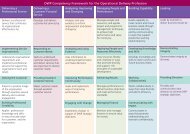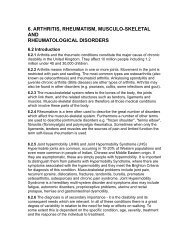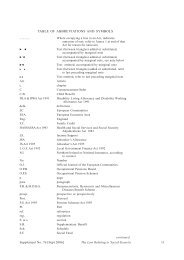ESF Guidance Manual 4 Annex 11: Article 13: ESF Verification ...
ESF Guidance Manual 4 Annex 11: Article 13: ESF Verification ...
ESF Guidance Manual 4 Annex 11: Article 13: ESF Verification ...
Create successful ePaper yourself
Turn your PDF publications into a flip-book with our unique Google optimized e-Paper software.
on Public Procurement and Concessions to Institutionalised Public-Private<br />
Partnerships (2007/C 6661)<br />
General<br />
<strong>Verification</strong>s in relation to public procurement should aim to ensure that EC<br />
procurement rules and related national rules are complied with and that the<br />
principles of equality of treatment, non-discrimination, transparency, free<br />
movement and competition have been respected throughout the entire<br />
process.<br />
<strong>Verification</strong>s in this area should be carried out as soon as possible after the<br />
particular process has occurred as it is often difficult to take corrective action<br />
at a later date.<br />
At award of funding stage, it should be ensured that beneficiaries are aware<br />
of their obligations in this area and that staff has received relevant training.<br />
Some Member States have prepared specific guidance on public<br />
procurement to be used by beneficiaries. This is particularly useful where<br />
beneficiaries are involved in ‘one-off’ contracts and lack relevant experience.<br />
Guides and explanatory notes on the Community rules for public<br />
procurement have been produced by the European Commission and provide<br />
useful information and explanations which can be used during verifications.<br />
(http://ec.europa.eu/internal_market/publicprocurement/index_en.htm)<br />
Intensity of verifications of public procurement<br />
The intensity of management verifications can vary according to the value<br />
and type of the contracts.<br />
In at least one Member State, compliance with public procurement rules for<br />
all contracts that exceed either the thresholds set in the EC public<br />
procurement directives, or national thresholds where these are lower, are<br />
checked. This approach may not be practical where the number of contracts<br />
exceeding the thresholds is high, but is particularly recommended where the<br />
contracting authority is known to lack relevant experience.<br />
It is essential that suitably experienced and qualified staff should be used to<br />
carry out these verifications and that detailed checklists are available for use<br />
by the staff.<br />
Planning<br />
Beneficiaries are responsible for ensuring the quality of the initial studies, the<br />
design and the accuracy of the project costing. Managing authorities /<br />
intermediate bodies should verify these elements and also check that cost<br />
estimates are up-to-date. This should ensure that problems with additional<br />
works / supplementary contracts during project implementation are avoided.<br />
Particular attention should be paid to checking:<br />
• The appropriateness of the procurement method being used;<br />
• The interdependence between the different contract phases (land<br />
acquisitions, site preparation, utilities connections etc);<br />
• Financing plans and the availability of national co-financing.<br />
<strong>Manual</strong> 4 <strong>Annex</strong> <strong>11</strong> - <strong>Article</strong> <strong>13</strong> Strategy | September 2012 Page 30 of 33


